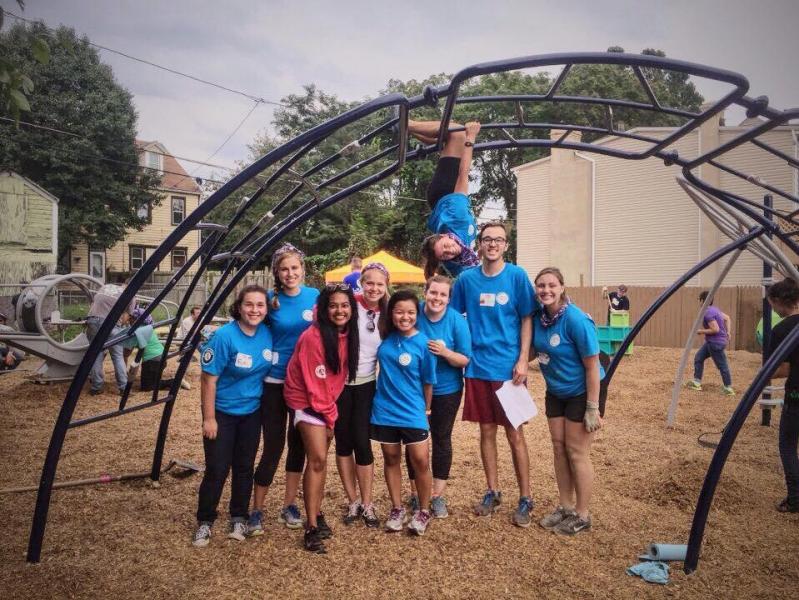Serving in Solidarity
This post was written by Nicole Paul, a Patient Navigator at Pittsburgh Mercy.
What is the difference between ‘charity’ and ‘solidarity’? This question has lingered on my mind since first reading the article “Rethinking Volunteerism in America” by Gavin Leonard during pre-service orientation. In the article, charity is described as “helping somebody, with little or no regard for what that person or group of people wants…It’s a top down process.” On the other hand, solidarity is “working with that somebody to identify what it is that the people that are being helped need and want…[It] assumes equality or at least recognition of a volunteer’s privilege.” After almost two months of service with the Pittsburgh Health Corps, which has included serving at my host site as well as engaging in various community outreach projects with my fellow Corps members, I am beginning to understand the value of taking a solidarity approach to service.
During a group education session a couple of weeks ago, the abstract idea of solidarity became more concrete. My host site is the Pittsburgh Mercy Family Health Center (a primary care center) and is integrated with mental and behavioral health care. As a result of this relationship, I have the opportunity to visit psychotherapy groups at behavioral health centers. I educate participants about aspects of physical health, such as using medication-assisted treatment with counseling to treat opioid or alcohol dependence.
The group’s therapist asked me to describe my role as a National Health Corps member. I talked about serving at my host site and also mentioned our involvement in community organizations and projects, like the Hazelwood playground build. When I mentioned the playground build, a project where I worked alongside volunteers from the Pittsburgh area and a group of Corps members to build a playground in a day, a woman in the group became excited. She told me that she lives in Hazelwood near the playground and showed me pictures she had taken during the build day. Additionally, she told me that the playground had brought “new life” to the neighborhood, and she always sees children playing there.
As I chatted with the woman about the playground, I began to consider the concept of solidarity. Through my involvement in her neighborhood, the woman and I were more connected and an almost immediate friendship formed. Participating in different outreach projects in Pittsburgh, learning about the larger issues, and expressing my appreciation for the opportunity to engage with the community had enabled me to better serve in my position at my host site. I’m eager to continue exploring the idea of solidarity, and I am confident that I will continue to learn how to serve with a greater understanding of the community during the rest of my time with the National Health Corps Pittsburgh.